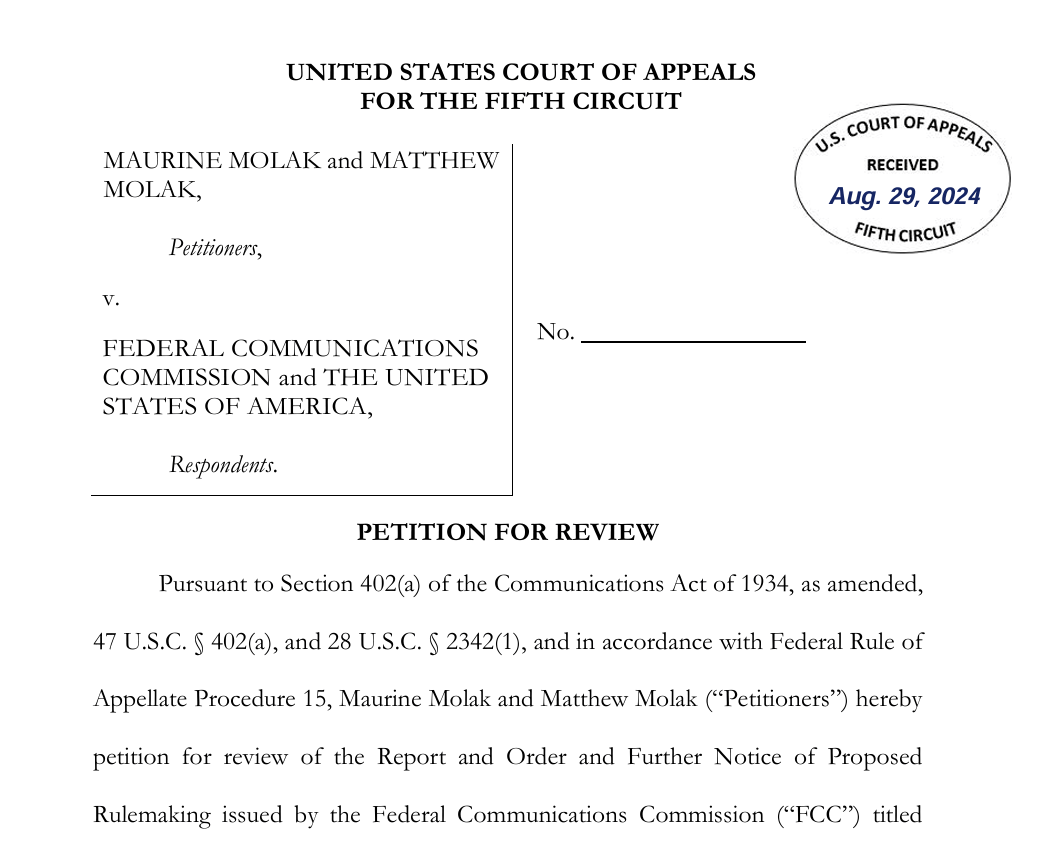Texas Couple Challenges FCC’s Wi-Fi Hotspots Order in Fifth Circuit
The Molaks also have a petition for reconsideration pending before the FCC.
Jake Neenan

WASHINGTON, September 4, 2024 – A Texas couple asked a federal court to toss a second Federal Communications Commission regulation expanding Internet access through a broadband subsidy program called E-Rate.

Molak Petition for Review
Last Thursday, in filing with the U.S. Court of Appeals for the Fifth Circuit, Maurine and Matthew Molak challenged a July order allowing the program to fund Wi-Fi hotspots for students to check out from schools and libraries.
They argued the FCC does not have the authority to fund connectivity outside the physical bounds of a library or classroom. It’s an argument they used in challenging an order expanding E-Rate to school bus Wi-Fi before the same court in a case still pending.
The Molaks also have an ongoing challenge against the order at the agency level. They filed a petition for reconsideration in late July, which consumer groups and T-Mobile have opposed.
The Molaks told the Fifth Circuit they had an interest in the matter also because the order “enabl[es] unsupervised social-media access by children and teenagers.” The two founded an anti-cyberbullying non-profit when their son died by suicide after being bullied online.
E-Rate rules require participating schools and libraries to comply with the Children’s Internet Protection Act, which requires them to monitor and filter the online activity of minors, as well as provide trainings on cyberbullying and social media.
The program spends more than $2 billion annually subsidizing broadband and telecom services for schools and libraries. Allowing recipients to use those funds for off-campus connectivity has been a flagship effort of FCC Chairwoman Jessica Rosenworcel, who has argued the Communications Act provides for such modernizations. Republicans in Congress and at the FCC have opposed the campaign, arguing the law only allows funding services within a classroom or library.
The Fifth Circuit, considered the most conservative federal circuit, broke with two other circuits and ruled over the summer that the funding scheme for the FCC’s $8 billion universal service program was unconstitutional. Analysts think the FCC is likely to win on appeal, as the Supreme Court has struck down some other Fifth Circuit decisions that upended precedent.










Member discussion